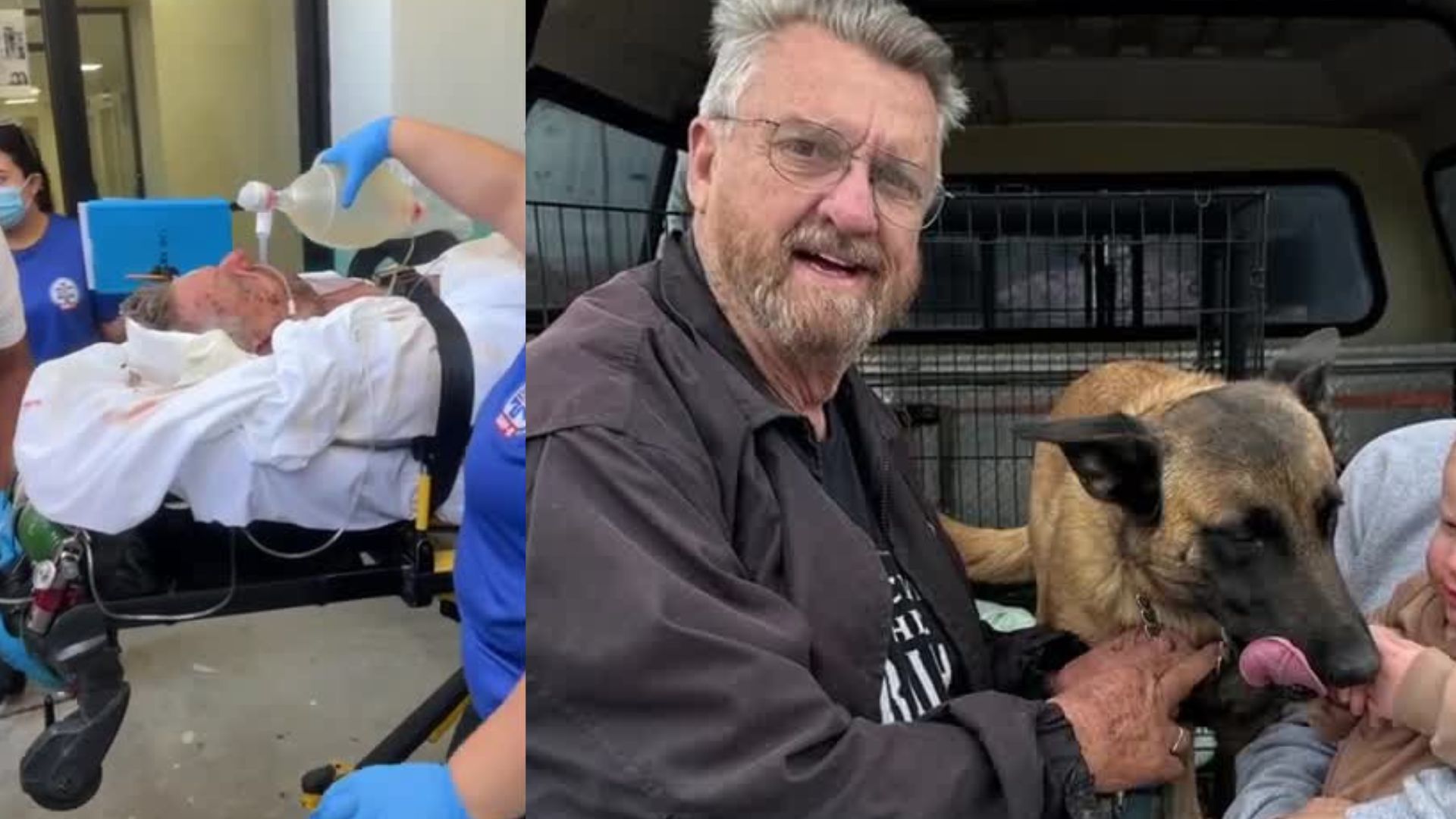CEDAR CITY, Utah — A man is recovering after being attacked by hundreds of bees in Mexico while trying to save his dog from the swarm.
His family is trying to raise funds via GoFundMe to bring him to Utah.
Richard Mockabee, who lives part of the year in California and part in Mexico, was attacked by Africanized "killer" bees in May while he was living south of the border, after returning to his truck following breakfast.
"They just see bees on him. This was after being [hospitalized] overnight already. Like, hundreds of bees on him. They spent four days getting stingers off," said Rebecca Lambert, Mockabee's daughter, who lives in Monterrey, California.
She said her father had discovered his waiting dog covered by a swarm of bees and went to rescue the animal when the bees turned their attack on him.
The dog did not survive the attack, and a firefighter was also killed by the Africanized bees.
Mockabee has been recovering in hospitals in Arizona and California. His family is now trying to raise funds to continue his care in Utah.
Steven Mockabee of Lehi says his father is still struggling, and they're trying to spread the word to get him the help he needs.
Daughter Rebecca and son-in-law Tee Lambert have been attending to him for nearly three months in California, which has meant putting their photography business on hold.
"So he's at a basic rehab facility there just to kind of get stronger. Our goal is to get him to Salt Lake City," Tee Lambert said.
"My brother and his wife, Sarah, live in Utah. They have a space where dad can continue to regain some more of that independence,” Rebecca added.
While the attack occurred in Mexico, Blaine Nay, the chief bee inspector for Washington and Iron counties, notes that this aggressive strain of bees has become the prominent one in southern Utah for the last two decades.
Nay has had his own encounters with these dangerous insects.
"I was just tapping on the wall looking for the stud. There's a hole maybe three quarters of an inch in diameter, and those bees just came boiling out of there," Nay said.
After being introduced in Brazil in the late 1950s from Africa, the bees have worked their way northward. Nay says they are now moving up through Utah.
"Well, they got here from Brazil... and they'll keep going north. And they'll get them in Salt Lake, they'll get them in Montana, they'll get them in Canada. It's just a matter of time before they move that far," Nay said.
Nay says he knows of a case where Africanized bees were shipped to Anchorage, Alaska and survived, indicating that cold weather won't stop their spread.
Reed Booth, known as the "Killer Bee Guy" on YouTube, described these bees as "real monsters who won't let up in their attack," a characterization echoed by Nay.
If you're under attack, Nay advises getting to an enclosed space immediately.
"Get inside a vehicle, get inside the house, just get into shelter. You can't run from them. The bee can fly about 30 miles an hour," Nay said. "People say, well, jump in a pond. Well, they'll just sit there and wait for you. Once they've stung you, you're marked for hours, maybe a couple of days."
If you encounter a hive, Nay recommends leaving it to professionals.
"What happens is when people have a problem with the bees, they call somebody. They'll call 9-1-1 and the dispatcher has a list of beekeepers they can call, and I'm one of them," Nay said.




